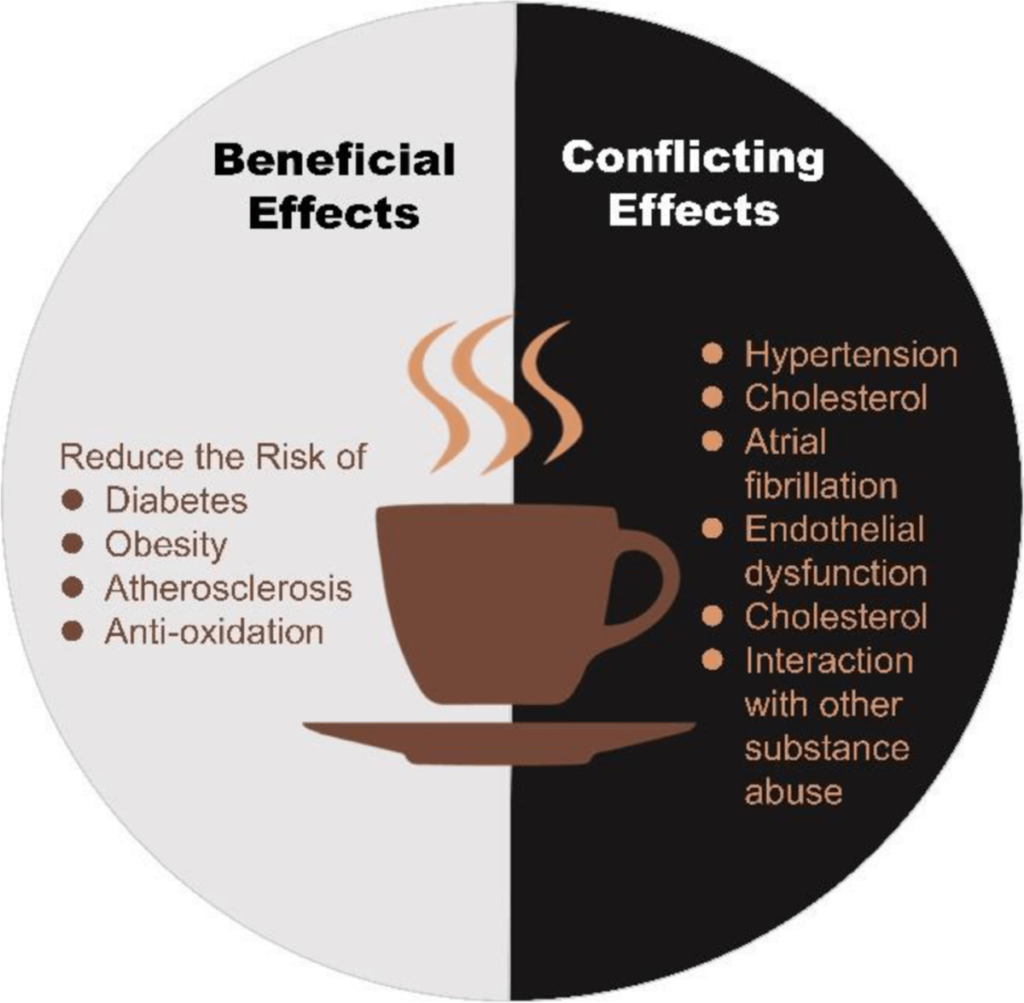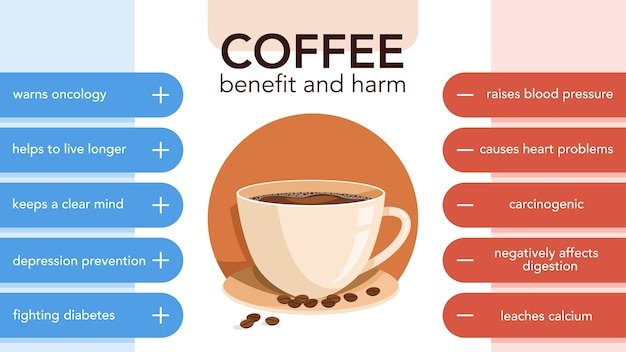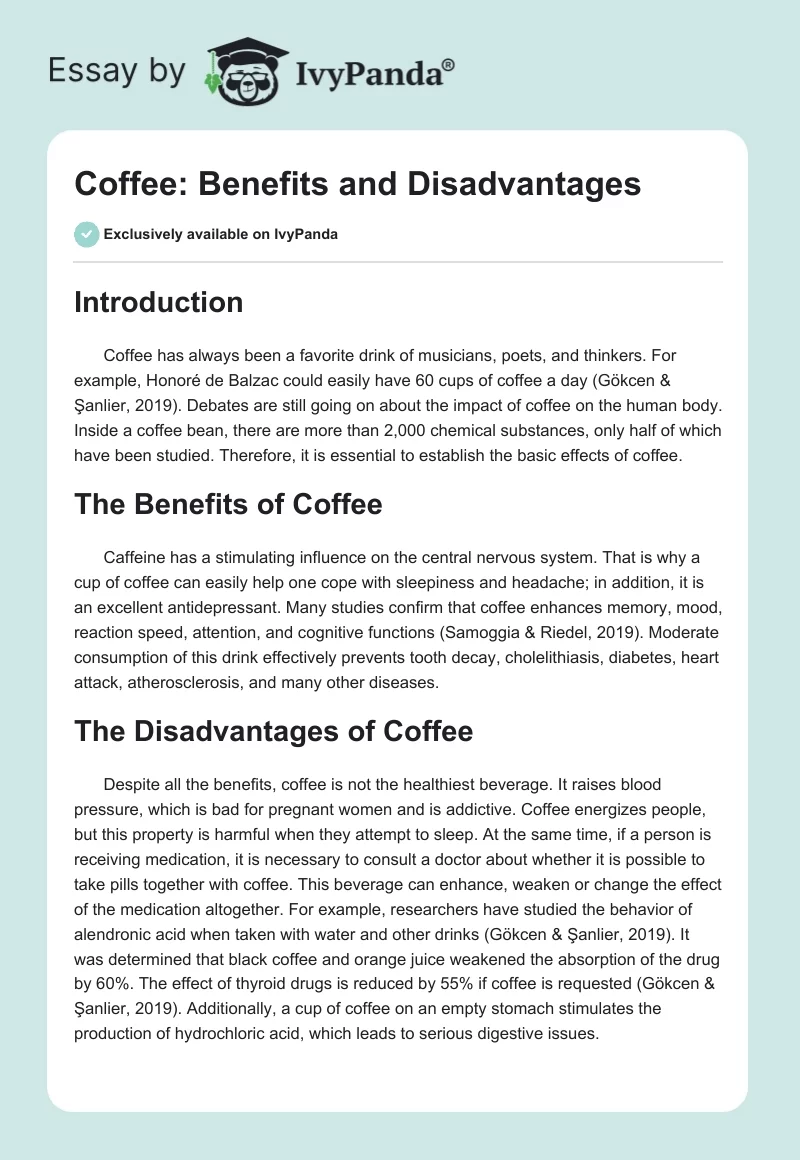Have you ever wondered about the disadvantages of coffee consumption? Although coffee is a beloved beverage worldwide, it doesn’t come without its drawbacks. In this article, we’ll uncover these disadvantages and explore why it might be wise to moderate your coffee intake.

Health-Related Issues
While coffee can provide a temporary boost of energy and alertness, it’s essential to be aware of the health issues that can arise from overconsumption.
Sleep Disturbances
Coffee is a well-known stimulant due to its caffeine content. While this might be beneficial during the day, it can interfere with your sleep cycle if consumed too late.
- Difficulty Falling Asleep: Consuming coffee in the afternoon or evening can make it harder for you to fall asleep at night.
- Reduced Sleep Quality: Even if you manage to fall asleep, caffeine can decrease the overall quality of your sleep, leaving you feeling less rested.
Increased Anxiety and Stress
High caffeine intake can lead to increased levels of anxiety and stress. This is particularly worrisome for those already struggling with anxiety disorders.
- Heightened Anxiety Levels: The stimulant effect of caffeine can exacerbate feelings of anxiety.
- Increased Stress Hormones: Coffee consumption can lead to higher levels of cortisol, the body’s primary stress hormone.
Digestive Issues
Coffee can be hard on your digestive system in several ways.
- Acid Reflux: Coffee is acidic and can aggravate acid reflux or gastroesophageal reflux disease (GERD).
- Stomach Irritation: Caffeine can increase the production of stomach acid, leading to gastritis over time.
Blood Pressure and Heart Rate
Drinking coffee can have a significant impact on your cardiovascular system.
- Increased Blood Pressure: Even moderate coffee consumption can temporarily raise your blood pressure.
- Elevated Heart Rate: High doses of caffeine can lead to tachycardia, a condition where your heart rate speeds up abnormally.
Dependency and Withdrawal
Another critical aspect to consider is the potential for dependency and withdrawal symptoms associated with coffee.
Caffeine Addiction
It’s easy to develop a reliance on coffee to get through your day. Over time, your body can become dependent on caffeine to function normally.
- Tolerance Build-Up: You may need more and more coffee to achieve the same stimulating effects.
- Psychological Dependence: The habit of drinking coffee can become a psychological crutch.
Withdrawal Symptoms
When you try to reduce or quit coffee, you may experience withdrawal symptoms that can be quite unpleasant.
- Headaches: One of the most common symptoms, caffeine withdrawal headaches can be severe.
- Fatigue: Without your daily caffeine fix, you may find yourself feeling unusually tired.
- Mood Changes: Irritability and mood swings are also typical symptoms of caffeine withdrawal.
Nutritional Concerns
It’s important to consider the nutritional implications of coffee consumption.
Impact on Nutrient Absorption
Coffee can interfere with how your body absorbs certain nutrients.
- Iron Absorption: Coffee inhibits the absorption of iron from plant-based sources.
- Calcium Depletion: High caffeine intake can lead to calcium being excreted from your bones, potentially weakening them over time.
Empty Calories
Many coffee drinks come loaded with sugar, cream, and flavored syrups, contributing to unnecessary calorie intake.
- High Sugar Content: Specialty coffee drinks can contain more sugar than a can of soda.
- Extra Fat: Added creams and syrups contribute to a higher fat and calorie content, which can affect your overall diet.
Environmental and Ethical Concerns
While enjoying your coffee, it’s also essential to consider the broader impact of your consumption.
Environmental Impact
The production of coffee has considerable environmental implications.
- Deforestation: Coffee cultivation can contribute to deforestation, particularly in tropical regions.
- Water Usage: Growing coffee requires significant amounts of water, placing strain on local water resources.
Ethical Concerns
The labor practices and fairness in the coffee industry can be troubling.
- Fair Trade Issues: Not all coffee is sourced through fair trade practices, which means that farmers might not receive fair compensation.
- Labor Conditions: In many regions, coffee farmers work under harsh conditions for low wages.

Social and Psychological Impacts
Coffee consumption can also have various social and psychological effects that are worth considering.
Social Isolation
Excessive coffee consumption can sometimes lead to social isolation.
- Solitary Habit: Drinking coffee can become a solitary habit, especially if you prefer focusing while working or studying.
- Reduced Social Interactions: Spending too much time alone with your coffee can reduce opportunities for socializing.
Short-Term Mood Boost versus Long-Term Effects
While coffee can offer a short-term mood boost, its long-term effects might not be as beneficial.
- Temporary Uplift: Caffeine can make you feel temporarily more upbeat.
- Mood Swings: Dependence on caffeine can lead to mood swings where you feel low once the effects wear off.
Misleading Perceptions
The marketing around coffee often highlights its benefits, but these can sometimes be misleading.
Perceived Health Benefits
While coffee does have some health benefits, they are often overstated.
- Antioxidants: While coffee contains antioxidants, other healthier foods such as fruits and vegetables offer similar benefits without the drawbacks.
- Disease Prevention: Claims that coffee can prevent diseases like Alzheimer’s or Parkinson’s are still inconclusive and should be taken with a grain of salt.
Cultural Trendiness
Coffee has become a trendy, cultural phenomenon, but it’s essential to look beyond the hype.
- Social Media Influence: The portrayal of coffee culture on social media can lead to overconsumption.
- Trendy Shops and Products: The rise of trendy coffee shops and products can make it harder for you to resist the lure of that next cup.

Financial Costs
Finally, it’s worth considering the financial costs associated with your coffee habit.
Daily Expense
Your daily coffee habit can add up over time, impacting your budget.
- Coffee Shop Costs: Buying coffee from shops is significantly more expensive than making it at home.
- Specialty Drinks: Specialty coffee drinks can be even more costly, with prices often reaching several dollars per cup.
Home Brewing Costs
Even if you make your coffee at home, there are costs to consider.
- Brewing Equipment: Quality coffee makers and grinders can be expensive.
- Premium Beans: Higher-quality coffee beans come at a higher price, adding to your monthly expenses.
Summary Table
To make this information easier to digest, here’s a table summarizing the disadvantages of coffee consumption:
| Disadvantage Categories | Specific Issues |
|---|---|
| Health-Related Issues | Sleep disturbances, anxiety, digestive issues, blood pressure and heart rate problems |
| Dependency and Withdrawal | Caffeine addiction, withdrawal symptoms |
| Nutritional Concerns | Impact on nutrient absorption, empty calories |
| Environmental and Ethical | Deforestation, water usage, fair trade issues, labor conditions |
| Social and Psychological | Social isolation, mood swings, misleading perceptions |
| Financial Costs | Daily expense, home brewing costs |

Conclusion
Understanding the disadvantages of coffee consumption can help you make more informed choices about how much coffee you drink. While it can be a delightful part of your day, moderation is key to avoiding the various issues outlined. By being more mindful of your coffee habits, you can enjoy your favorite beverage without compromising your health, finances, or social well-being.
